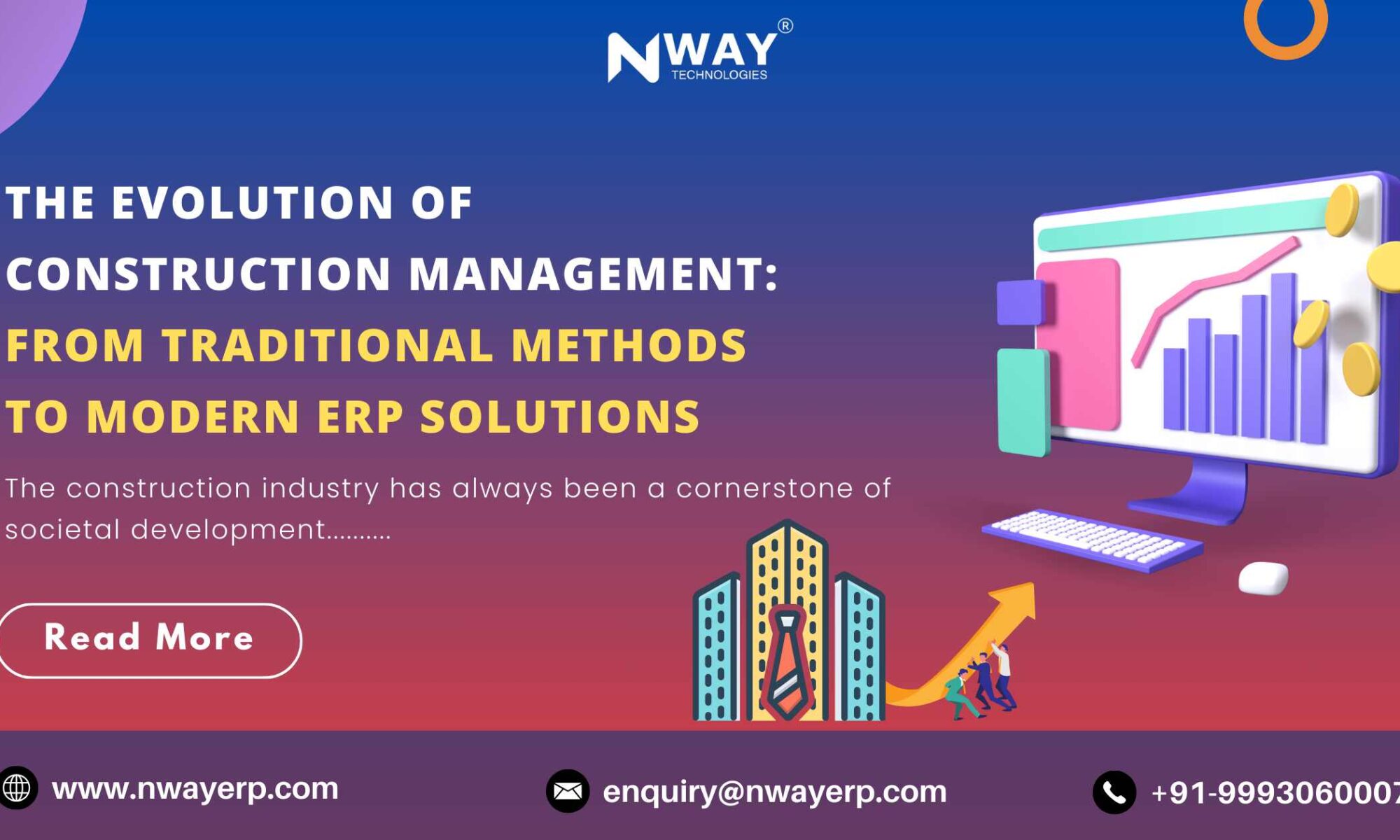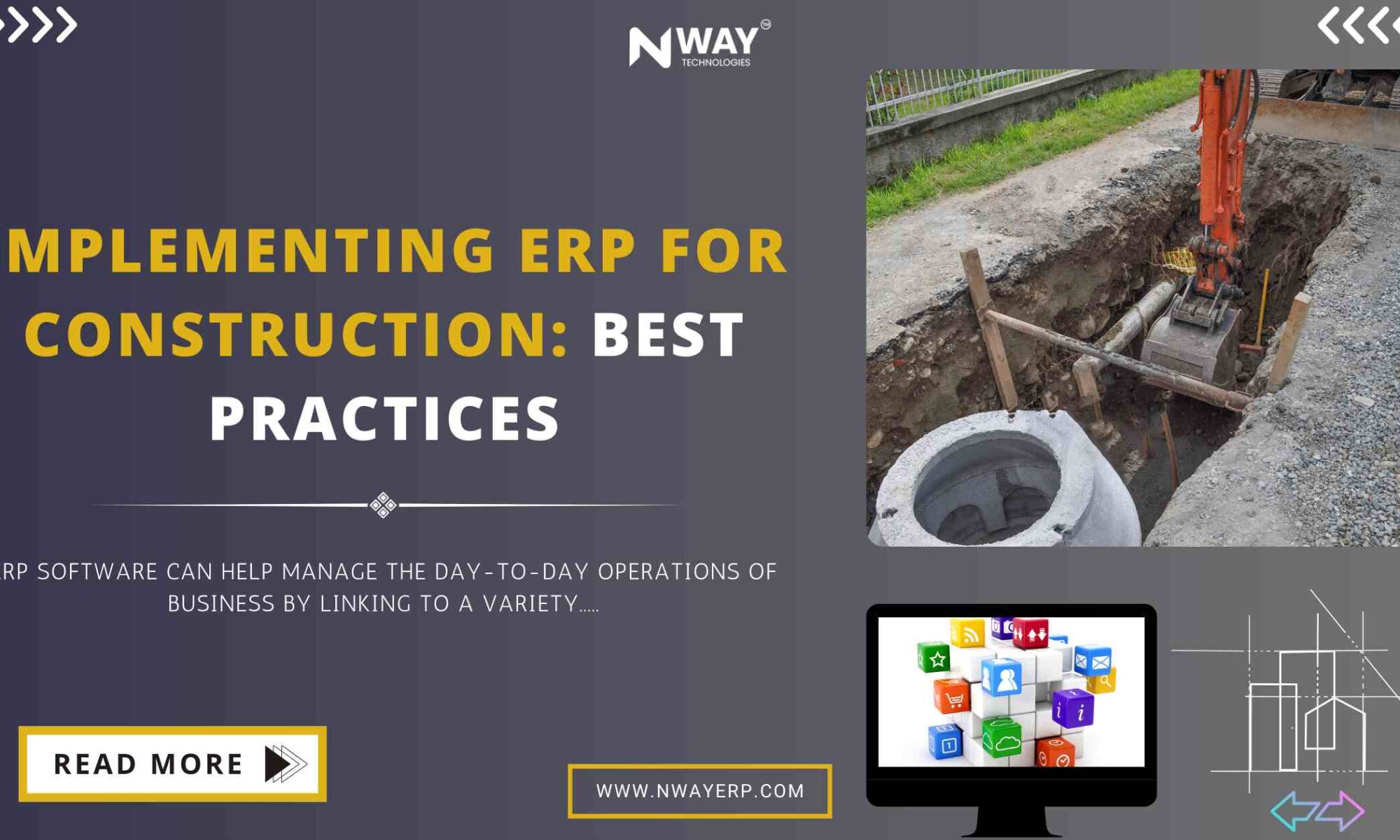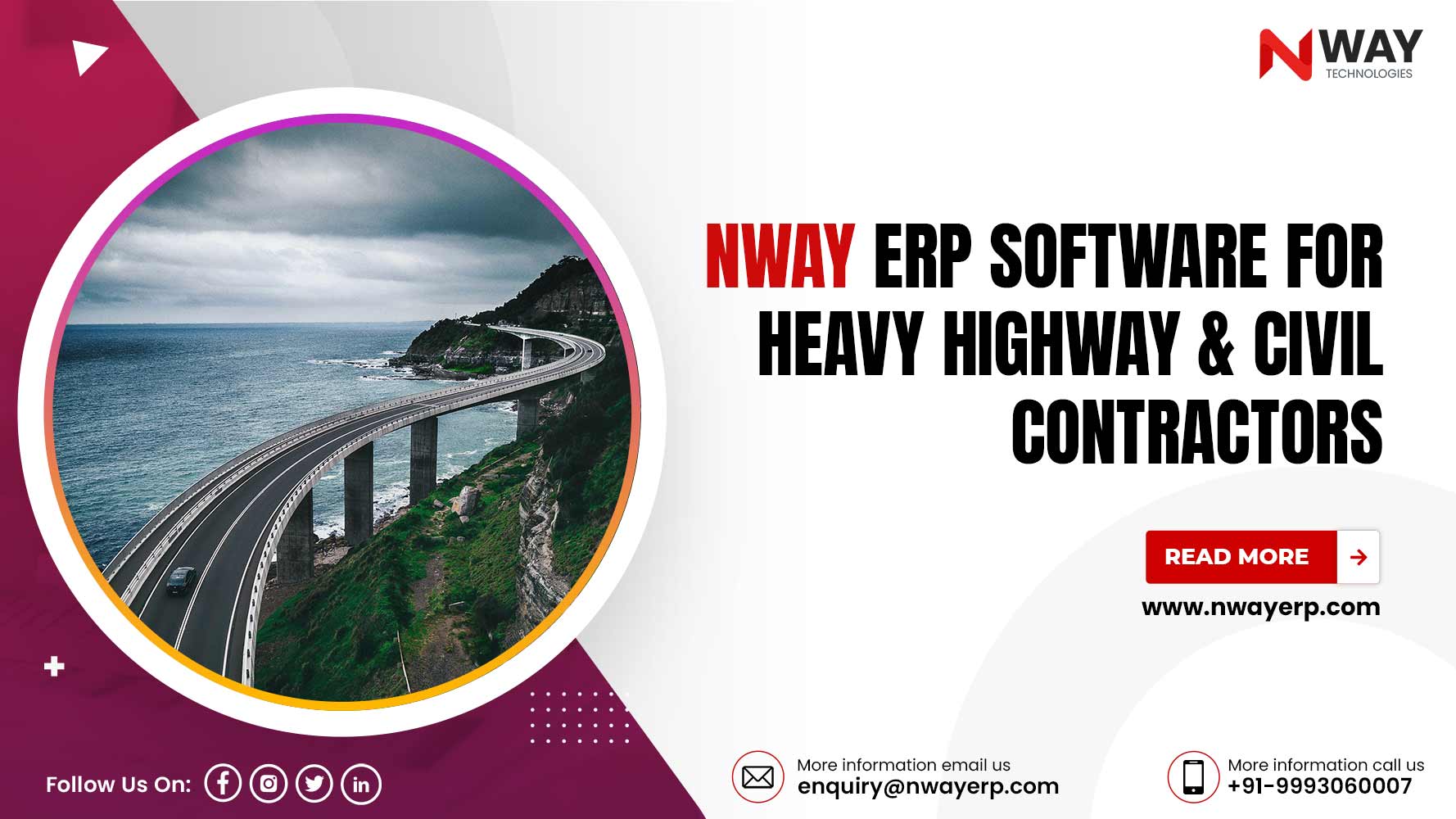In the fast-paced field of construction, in which projects can be complex and vast, managing effectively is essential. ERP software implementation has been a vital game changer for construction firms in streamlining processes and improving efficiency overall. In this article, we’ll discuss some of the top practices for successfully implementing ERP in the construction sector.
What is ERP Software?
Also referred to as Enterprise Resource Planning, ERP is a collection of technologies and systems that allow organizations to oversee and manage their core business operations. The core enterprise processes discussed in this article are accounting and supply chain operations project control, risk management procurement, enterprise performance management, and compliance. These are just a few essential business procedures that can be automated using an ERP.
Therefore, ERP software can help manage the day-to-day operations of a business by linking to a variety of functions and permitting information to flow across these processes. It is true that ERP software also reduces duplicate data by capturing information about your company’s transactions from a variety of sources, thereby giving data security.
ERP Needs in the Construction Sector and the Advantages of ERP Implementation
Construction is a business where it is necessary to put in a lot of effort to manage the equipment, tools, and other equipment involved in executing every construction project effectively. By using ERP software for the construction sector, you will receive a reliable company solution with analysis tools and functions that allow scheduling and information integration.
A Construction ERP system can integrate the fundamental tasks of construction along with other modules of the company, including the management of inventory and stocks as well as financial management, HR management and contractor management. It also includes bidding management, vendor management, payroll, CRM and many more operations.
The reason for ERP in the construction sector and the advantages that could be expected to accrue from ERP implementation can be described like this:
Automation of Operations
Construction companies typically have a huge scale and operate multiple businesses, often over different locations additionally. The most common operations they have are managing staff, project administration, procurement management cost estimation, as well as client management. Depending upon the company’s size the size and scope of each one of these activities could also grow. It is a problem that is not solved with manual methods.
Optimization of Project Management
Without the proper management of projects and proper project management, no company in the construction industry is able to last its lifetime or maintain long-term relationships with clients. Any minor defect that results in a delay to delivery or even a mistake made during construction can ruin the entire construction project and can result in massive permanent expenses.
Effective Internal Communication
One of the main reasons which can lead to the failure of meeting deadlines on projects is the absence of a good communications system across every department of the company. The use of an ERP solution can address this issue right away because it has built-in chat forums, video interactions possibilities, linked calendars as well as other features to increase internal communication across diverse departments. When utilized by all members of a specific project can ensure that all involved members are notified simultaneously with no delays.
Mobile Friendly
ERP software has now been made mobile-friendly thanks to the plethora of availability of mobile phones across all areas and websites. The main benefit of this is that access to relevant information about the project on your mobile device speeds up general operations of construction companies. This ensures that there aren’t delays or errors that might have been avoided. Additionally, accessing Construction ERP via mobile devices assures that updates in real time for the project continue to be made at every site of the project. This helps in enhancing the efficiency of business activities.
Marks 24×7 Presence
The most effective way to ensure that the timeframes set by construction projects are complied with and done at the highest efficiency is by the use of the ERP system. Through an ERP will make sure that no one of your projects experience delays due to the absence of any staff member and ensure that every inquiry related to the project as well as information are available to each project participant at all times and locations. This is a 24×7 company presence.
Ease of Data Transfer
Companies in the construction sector have a huge pool of activities and simultaneously documentation for the same. That means the total control and management of the data can be a difficult management task for supervisors that becomes difficult when the construction firm grows.
Efficiency in Decision Making
The majority of construction companies are big-sized, having their business operations distributed across various divisions, teams, stakeholder as well as geographical areas, and other locations. That meant data and information used to be distributed across different locations and not accessible, constantly updated and, more often than not even in overlapping form and causing problems in the decision-making process.
Improves the Marketing Strategies
In light of the fact that the introduction of an ERP system within construction firms provides thorough analysis of every aspect of activities of the business, which includes the business metrics, KPIs for marketing as well as financial KPIs and the like, this comprehensive analysis and insight aids in not only improving, but improving the marketing strategy of your business.
Construction Bid Cost and Revenue Estimations
In the field of construction marketing, companies must bid for contracts. It is by estimating costs and, in the end, the firm that has the most competitive pricing is awarded the contract. The implementation of a construction ERP software can be a major benefit in the estimation of costs since it allows an accurate estimate of costs based upon the available resources and the anticipated price changes within the same area, along with other pertinent parameters.
Digital Documentation
One of the major advantages of ERP installation in construction companies is that it decreases the need for paper documents. In addition, digitally saved documents are accessible anywhere, regardless of time of day. Access to documents being less frequent, which guarantees confidentiality and privacy of private data.
9 ERP Implementation Best Practices
1. Project Team
The creation of a strong project team is essential. In general, an ERP team for implementation consists of a govt-sponsored patron, a supervisor for the project and key representatives from enterprise organizations involved with the project. The presence of a government administrator who is able to change the company’s priorities as well as bring on extra resources if necessary is essential to the successful implementation.
2. Key Requirements
For any Construction ERP project, it is essential to identify clear needs and requirements that must be tied to the goals of your business. These objectives could, for example, include automating procedures to reduce hours and reduce prices and enhancing the ability of responding to customers and creating greater evaluation within the company.
3. KPIs
Once you have a good understanding of the key needs, you’ll be able to identify specific KPIs. They can be used as objectives to assess the performance of the ERP system you’ve implemented. A manufacturer, for instance, could require to improve cycles, inventory turnovers and accuracy of forecasts for demand price, backlogs of orders, and the time it takes to get down. Retailers’ KPIs can include sales per square foot and margins of revenue, sell-through rates, the common value of purchase and the number of sales per square foot, inventory turnover, and rate of conversion.
4. Project Management
An ERP installation can last from between three and one year or more for massive companies. It is essential to establish the framework for project management to help guide the ERP implementation to be successful over all the time. In the end the project manager should focus on coordinating the ERP initiative to the business’s needs and ensuring that the project stays in the right direction, and making sure that senior management and various stakeholders have the ability to provide information.
5. Collaboration and Communication
Effective projects are built around consensus on the purposes and goals that will be achieved through an ERP implementation. Everyone -including the CEO and customers to stay in sync. Everyone should have a clear understanding of the reason why a business is adopting the ERP system and what it will perform, the benefits it’ll provide and what you should anticipate during the ERP installation procedure.
6. Data Migration
Moving data over to the ERP software is a critical element of the process that requires meticulous planning and preparation. Any time you migrate, you run into an opportunity that data could be lost or damaged, in particular if you’re consolidating and standardizing data that comes from a variety of totally different applications.
7. Training
It’s not realistic to assume that workers will immediately become proficient in the latest Construction ERP system. Continuous, targeted training which is tailored to the requirements of different roles and groups may help users take to the system and earn the maximum benefit from it. A good option is to supply personalized content that is like tutorials and movies as well as allow staff members and other employees to select the best content for their job.
8. Support
The date of the go-live is reason to be happy. However, once people begin using the software and begin using the system, they’ll come across the points and ask questions. It’s a good idea to arrange the system by providing a range of sources. Technical assistance will be necessary initially. This might include assistance desks as well as an online knowledge base as well as forums that help people in completing their tasks.
9. End-user Feedback
The gathering of suggestions from end users can prove extremely beneficial during the entire process of implementation. At the beginning the process can help to gain a better understanding of the way people function with each other, their interactions with other employees and potential customers as well as the challenges they encounter each day.
Read More: Future Trends of Construction ERP Software
Final Words
By using an ERP software, firms in the construction industry similar to yours will be able to optimize and control their processes for business like accounting production, finance and marketing, estimation, design and designing, customer support logistical, scheduling, monitoring risk, maintenance, plan, etc.
ERP is a unified management software for firms working in the field of construction One of the most effective ERP solutions you can use can be the NWAY ERP software. It does this since it permits you to export information from various sources to the system. This creates a central data repository for your company that is powered by cloud, and can be accessed via a variety of devices and sites and locations, since it has an application. NWAY ERP thus leads to seamless streamlining and integration of the entire business process.






